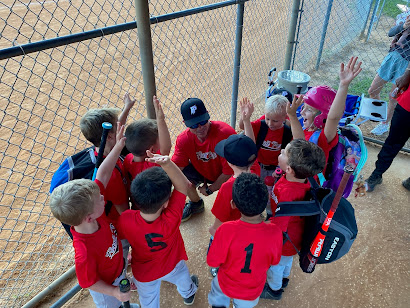Ensuring Dignity: Promoting Elderly Rights and Safety in Nursing Homes
The elderly population is one of the most vulnerable groups in society, and as the number of aging individuals increases, the importance of ensuring their rights and safety in nursing homes becomes paramount. Nursing homes are meant to provide care, comfort, and security to those who can no longer fully care for themselves. Yet, instances of neglect, abuse, and violation of rights are not uncommon. Protecting the dignity of older people is essential, and this requires a concerted effort from families, caregivers, and policymakers. This article explores the critical aspects of promoting elderly rights and safety in nursing homes, the challenges faced, and the measures that can be taken to ensure a dignified life for our aging population.
Right to Privacy and Autonomy
Privacy and autonomy are critical to maintaining the dignity of elderly individuals. Residents in nursing homes have the right to privacy in their personal space and during medical treatments. They also have the right to make decisions about their care, including the right to refuse treatment or to participate in activities of their choosing. Preserving autonomy helps elderly individuals maintain a sense of control over their lives, which is vital for their mental and emotional well-being.
Right to Protection from Abuse and Neglect
Elderly residents have the right to be protected from all forms of abuse, whether physical, emotional, financial, or sexual. Neglect, which can include failing to provide necessary care, ignoring medical needs, or isolating residents, is also a violation of their rights. Nursing homes are legally obligated to ensure that residents are safe and that any signs of abuse or neglect are promptly addressed.
Understaffing and Inadequate Training
One of the most pressing challenges in nursing homes is understaffing. Many facilities need help with maintaining adequate staff levels, which can lead to overworked caregivers and compromised quality of care. Inadequate staffing can result in neglect, as caregivers may need more time or resources to attend to all residents' needs promptly.
Additionally, more staff training is needed. Caregivers who are not adequately trained may lack the necessary skills to provide quality care or to recognize and respond to signs of abuse and neglect. Ensuring that staff receive comprehensive training in elder care, including identifying and preventing abuse, is crucial for promoting elderly rights and safety.
Financial Exploitation
Financial exploitation is another serious issue that affects elderly residents in nursing homes. This can involve caregivers or even family members taking advantage of the resident’s economic resources for their gain. Elderly individuals may be coerced into signing over their assets, or their bank accounts may be accessed without their permission. Financial abuse can leave elderly residents vulnerable and can significantly impact their quality of life.
Isolation and Lack of Advocacy
Many elderly residents in nursing homes experience isolation, which can exacerbate feelings of loneliness and depression. This isolation can also make it more difficult for them to advocate for themselves or to report instances of abuse or neglect. Residents who do not have regular contact with family members or external advocates may feel powerless and may be less likely to speak up about their concerns.
Strengthening Regulations and Oversight
One of the most effective ways to promote elderly rights and safety is by strengthening regulations and oversight of nursing homes. Government agencies should enforce strict standards for care and conduct regular inspections to ensure compliance. Facilities that fail to meet these standards should be held accountable and required to make necessary improvements.
Enhancing Staff Training and Support
Providing comprehensive training for nursing home staff is essential for ensuring that elderly residents receive the highest standard of care. Training should cover a wide range of topics, including elder care best practices, recognizing and preventing abuse, and understanding residents' rights. Ongoing education and support for staff can also help prevent burnout and reduce the likelihood of neglect or mistreatment.
Nursing homes should also ensure that they have adequate staffing levels to meet the needs of their residents. This may involve hiring additional staff, offering competitive wages, and providing a supportive work environment that encourages staff retention.
Encouraging Family Involvement and Advocacy
Family members play a crucial role in advocating for the rights and safety of their elderly loved ones. Regular visits, communication with nursing home staff, and involvement in care planning can ensure that residents are receiving the attention and care they deserve. Families should also be aware of the signs of abuse and neglect and should not hesitate to report any concerns to the appropriate authorities.
Ensuring the dignity, rights, and safety of elderly residents in nursing homes is a collective responsibility that requires vigilance, compassion, and a commitment to excellence in care. By understanding the challenges that nursing homes face and implementing strategies to address these issues, we can create an environment where elderly individuals are treated with the respect and dignity they deserve. Protecting the rights of older people is not just a legal obligation but a moral imperative that reflects the values of a caring and just society.

Comments
Post a Comment